
AT SHARM’S LENGTH
Reforming food systems to mitigate climate change sidelined at COP27
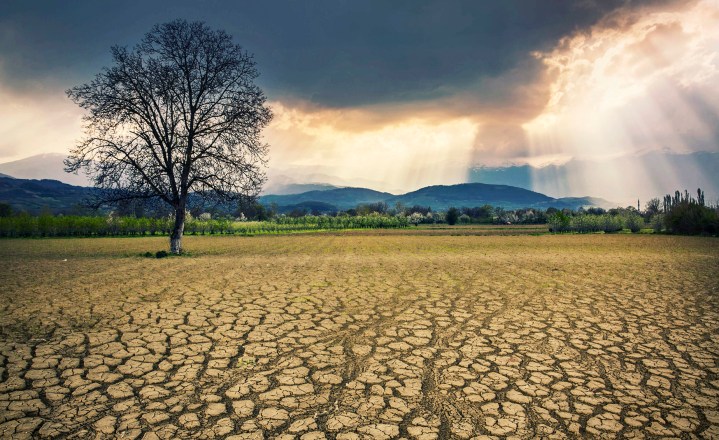
It took 26 years, and 26 COP summits, before food systems appeared on the agenda of the United Nations’ 27th annual global summit on climate change. But still, food systems – everything involved in how we grow, raise, catch, process, trade, transport, consume and dispose of our food – were a side-show to the main event, which focused on reaching an agreement on ‘loss and damage’.
COP27, the 27th annual United Nations climate-change summit held in Sharm el-Sheikh, Egypt, concluded on Friday, 18 November, with a historic final agreement on “loss and damage” – but no progress on consolidating or improving the promises made at COP26 last year on limiting global heating to no more than 1.5°C above pre-industrial levels, nor on phasing out fossil fuels.
On Sunday, the Guardian reported, UN secretary-general António Guterres warned: “Our planet is still in the emergency room. We need to drastically reduce emissions now – and this is an issue this COP did not address. The world still needs a giant leap on climate ambition.” (The final agreement only “recognises that limiting global warming to 1.5°C requires rapid, deep and sustained reductions in global greenhouse gas emissions of 43% by 2030 relative to the 2019 level”. That is just seven years from now.)
The summit had opened with a stern and terrifying rebuke from Guterres: “We are in the fight of our lives. And we are losing. We are on a highway to climate hell with our foot on the accelerator.”
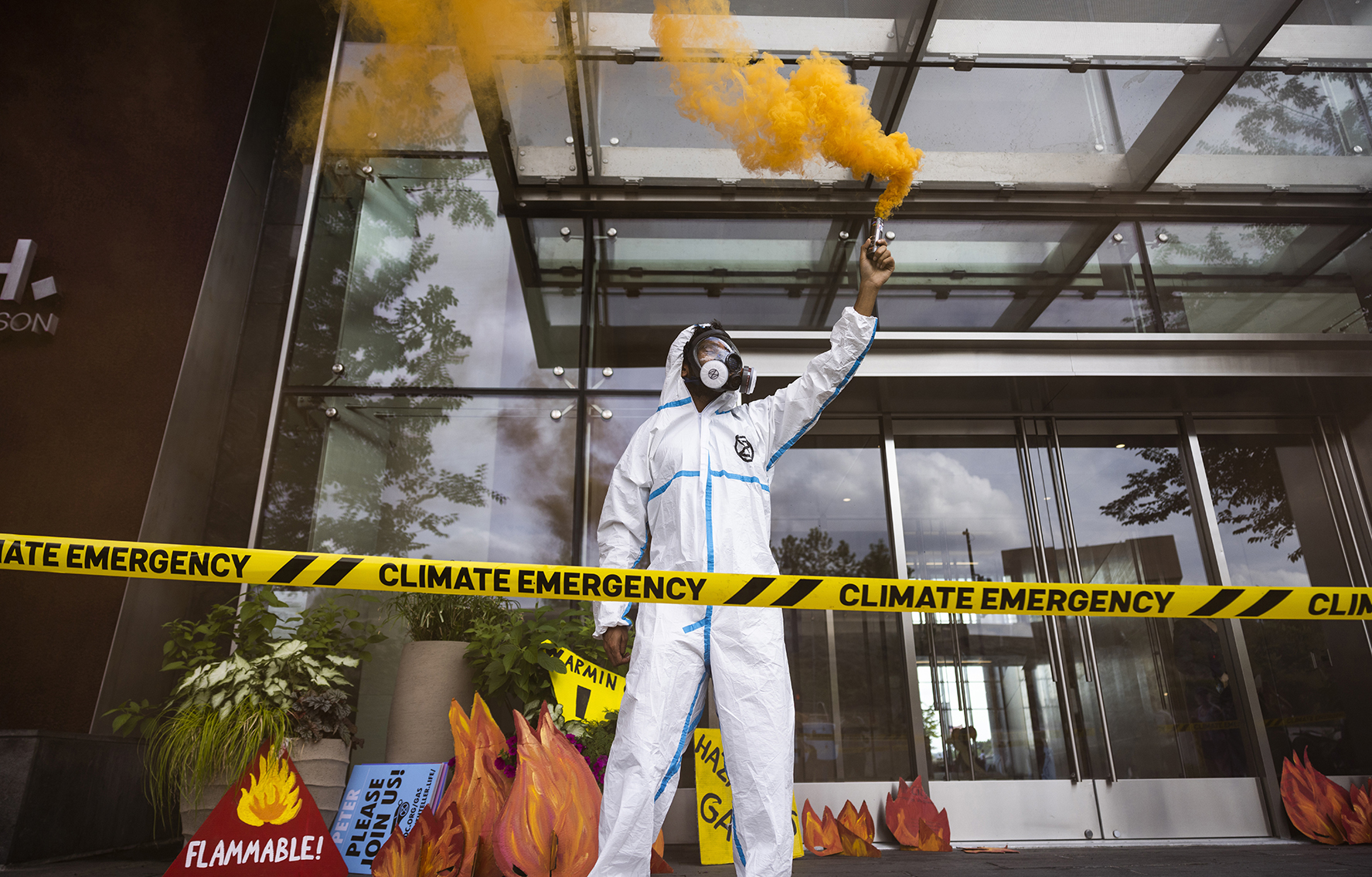
Extinction Rebellion activists protest against the use of fossil fuels outside the headquarters of Washington Gas in Washington, DC, on 8 July 2022. While methane burns more efficiently than coal, it still accounts for 20% of global greenhouse gas emissions. (Photo: EPA-EFE / Jim Lo Scalzo)
And yet, despite the fact that global food production contributes a full one-third of humanity’s acceleration to that “climate hell”, food systems’ role in the climate crisis was formally discussed for the first time at COP27.
A new analysis presented at COP27 concludes that the combined greenhouse gas emissions of 15 of the world’s largest meat and dairy companies (five meat, 10 dairy) are equal to more than 80% of the European Union’s entire methane “footprint”. The overall greenhouse gas emissions of the 15 companies, about 734 million tons of CO2 equivalent, exceed the total emissions of Germany.
If those 15 companies were a country, the researchers said, they would be the 10th-largest global emitter of greenhouse gases in the world, with their combined emissions exceeding those of major global oil producers such as Shell and BP.
Read in Daily Maverick: “Just not good enough COP27 – time is up and we’re no closer to solutions”
Methane, released into the atmosphere mainly by cows and their manure (as well as by food waste in landfills, and by oil, gas and coal mining and processing), traps heat 80 times more effectively than carbon dioxide over 20 years, making it a much more potent contributor to global heating. (The upside is that methane only lasts in the atmosphere for 10 years, so reducing methane emissions quickly could have a rapid positive impact.)
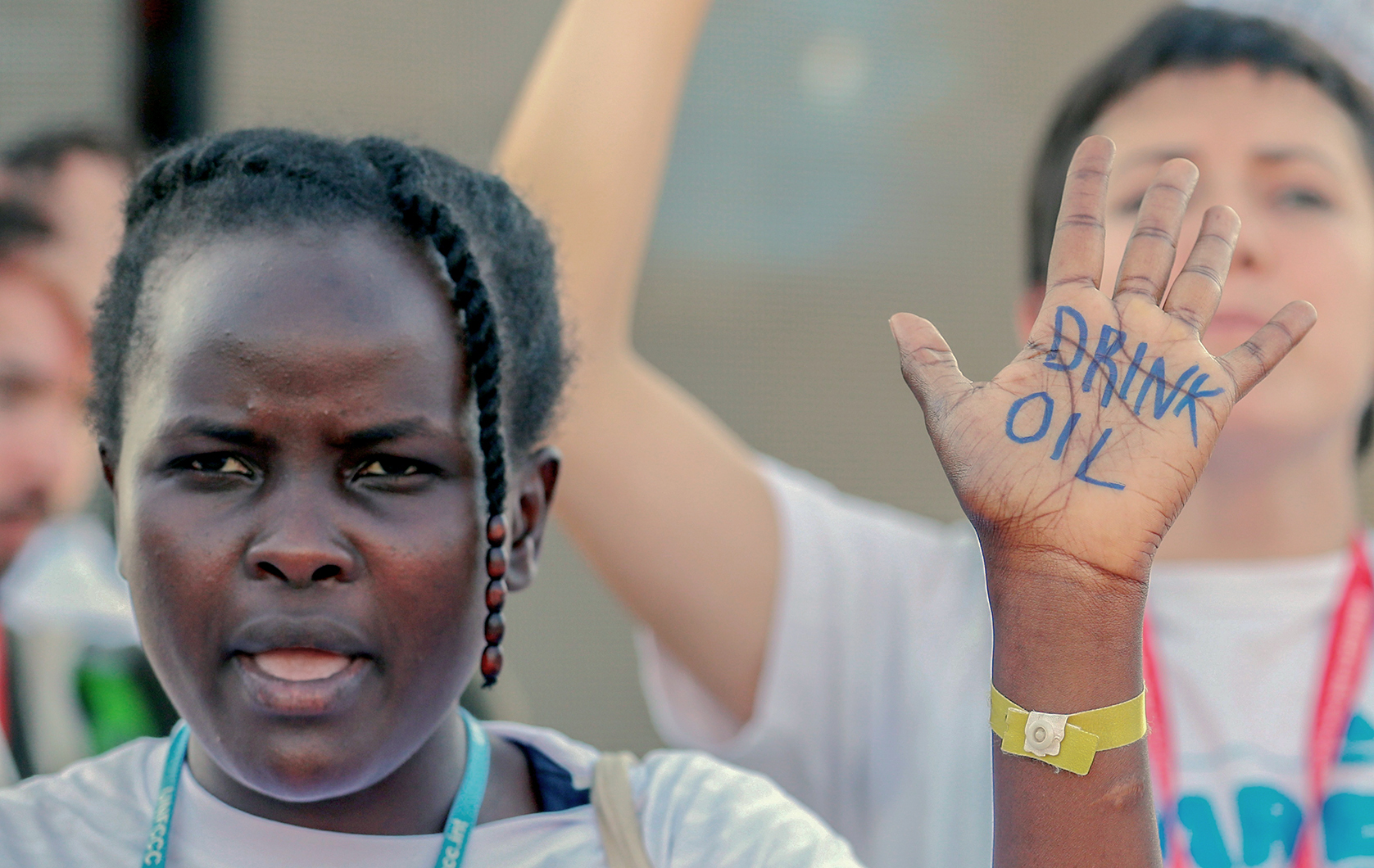
Climate activists demand climate justice and human rights during the COP27 summit in Sharm El-Sheikh, Egypt, on 10 November 2022. (Photo: EPA-EFE / Khaled Elfiqi)
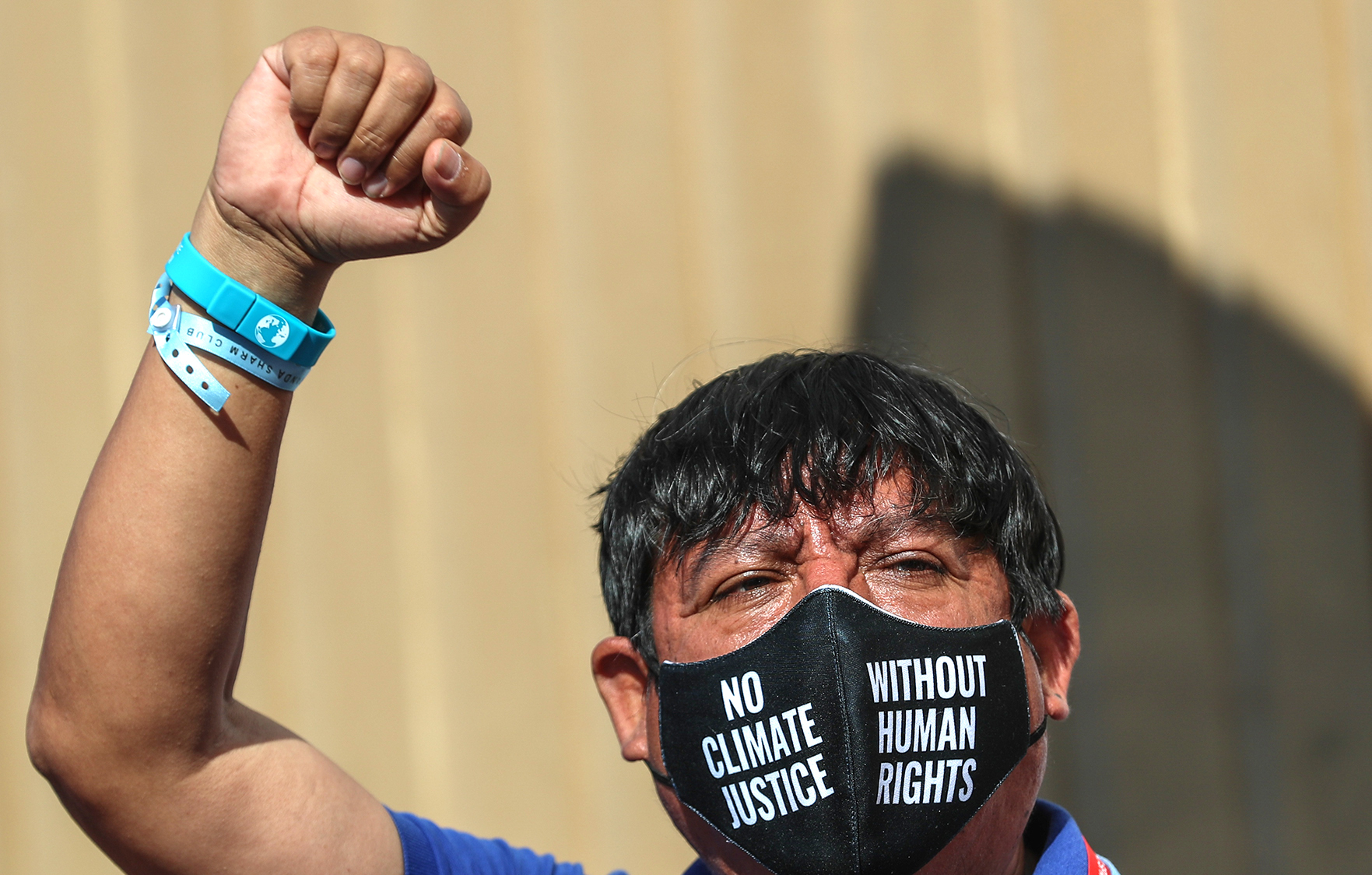
A climate justice activist joins a protest against fossil fuels at COP27 on 11 November 2022. (Photo: EPA-EFE / Sedat Suna)
“There are just two actions needed to prevent catastrophic climate breakdown,” wrote Guardian columnist George Monbiot on 9 November, “leave fossil fuels in the ground and stop farming animals. But, thanks to the power of the two industries, both aims are officially unmentionable.”
Neither topic has featured in a meaningful way (that is, included as part of a decision rather than just as a mention) in any of the declarations from the 26 climate summits that preceded this one, Monbiot said. (Fossil fuels are mentioned in six declarations and livestock in three.) “Nowhere is there a word about reduction,” he wrote (the word associated with them is “management”). “It’s as though nuclear non-proliferation negotiators had decided not to talk about bombs.”
Food facts
The food-related “bombs”, which were not new news but were discussed at a COP for the first time, included:
- Food and agriculture are responsible for one-third (33%) of global greenhouse gas emissions;
- About 70 billion animals are farmed worldwide every year, contributing at least 16.5% (possibly as much as 28%) to overall greenhouse gas emissions because of the methane they expel. (This is much greater than the total greenhouse gases from transport);
- Increasing food production, including increasing global demand for meat, sees predictions of an increase in food-related greenhouse gas emissions by about 40% by 2050 (two-thirds of this is methane from livestock);
- About one-third of all food produced is wasted;
- Food waste is responsible for close to 10% of all greenhouse gas emissions (from methane) – four times more than the global airline industry;
- Food and agriculture are the largest sources of environmental degradation;
- Agriculture takes up half of Earth’s habitable land and threatens 24,000 of the 28,000 (86%) animal, fungi and plant species, especially those at greatest risk of extinction; and
- Small-scale farmers produce up to 80% of the world’s food but receive less than 1.7% of climate-related finance.
New initiatives: Baby steps on food systems’ role in climate change
Amid the fraught negotiations on loss and damage that grabbed most of the headlines, food systems experts and advocates came together in force to run meetings, panel discussions and workshops in three dedicated venues during the 12 days of the conference – the Food Systems Pavilion, the International Fund for Agricultural Development Pavilion, and the Food and Agriculture Pavilion.

Members of The Global Climate and Health Alliance take part in a protest at COP27 on 16 November 2022. (Photo: EPA-EFE / Sedat Suna)
On “Adaptation and Agriculture” Day (the first at a COP) on 12 November, several new food system-related initiatives that aim to join the dots more explicitly and forcefully between food systems, climate and nutrition were launched. These included a WHO, Food and Agriculture Organization (FAO) and other UN agencies’ initiative called I-CAN (Initiative on Climate Action and Nutrition), which aims to integrate the implementation of climate and nutrition-programmes in way that accelerates progress on both; and FAO’s FAST, which will increase finance for “sustainable transformation of agrifood systems”.
Read in Daily Maverick: “Breakthrough on climate compensation, and other takeaways from COP27”
One of I-CAN’s most important goals is to build nutrition into countries’ Nationally Determined Contributions (NDCs), which are countries’ individual climate action plans to cut emissions and adapt to climate impacts, and to build climate into national nutrition plans. (South Africa has an NDC, as do all 197 countries that are party to the Paris Agreement, which requires every country to define how they will limit their greenhouse gas emissions so that all countries collectively meet global targets.) I-CAN also encourages more relevant policies, such as inviting more countries to consider climate considerations in their dietary guidelines. (South Africa is far from having one of these.)
A third food-related initiative at COP27 related to the Koronivia Joint Work on Agriculture, a UN process established at COP23 in Rome in 2018 to recognise “the vital role of the food security and agricultural sectors in climate change adaptation and mitigation”. But at COP27, food systems advocates and experts are begging for Koronivia to be updated.
Visit Daily Maverick’s home page for more news, analysis and investigations
They are calling for Koronivia’s new mandate to take “a particular focus on sustainable food production, nutrition and dietary shifts, as well as food loss and waste”. (The original Koronivia decision addressed six interrelated topics: soils, nutrient use, water, livestock, methods for assessing adaptation, and the socioeconomic and food security dimensions of climate change across the agricultural sectors.)
A global coalition of more than 80 organisations from across the food systems community, including the World Wildlife Fund, the Food and Land Use Coalition, the think-tank Chatham House, and the Physicians Association for Nutrition South Africa signed a letter addressed to negotiators and ministers at COP27, urging them to consider this enhanced focus on all aspects of the food system.
So much to do, so little time
The bottom line is simple: though the pathway to getting there is less so. “There is no pathway to reach a 1.5°C world without transforming the ways we produce, distribute and consume food and use our land,” said an official “key message” from the Food Systems Pavilion.
“Accelerating innovation and nature-based solutions alongside inclusive decision-making can create food- and land-use systems that sustain and support food producers, communities and the planet. New visions are needed for how food systems will operate into the future, and the central role of farmers and small-scale agriculture as positive agents of change. Business-as-usual is not an option.”
Read in Daily Maverick: “Protest and repression at COP27 in Sharm el-Sheikh”
COP26 failed to recognise the role that food systems can have in strengthening all countries’ climate adaptation, mitigation and resilience, and COP27 represented a major opportunity to change this, food systems experts have said over the past two weeks.

An activist at COP27 urges world leaders to maintain policies that limit warming to 1.5°C since pre-industrial times on 19 November 2022. (Photo: EPA-EFE / Sedat Suna)
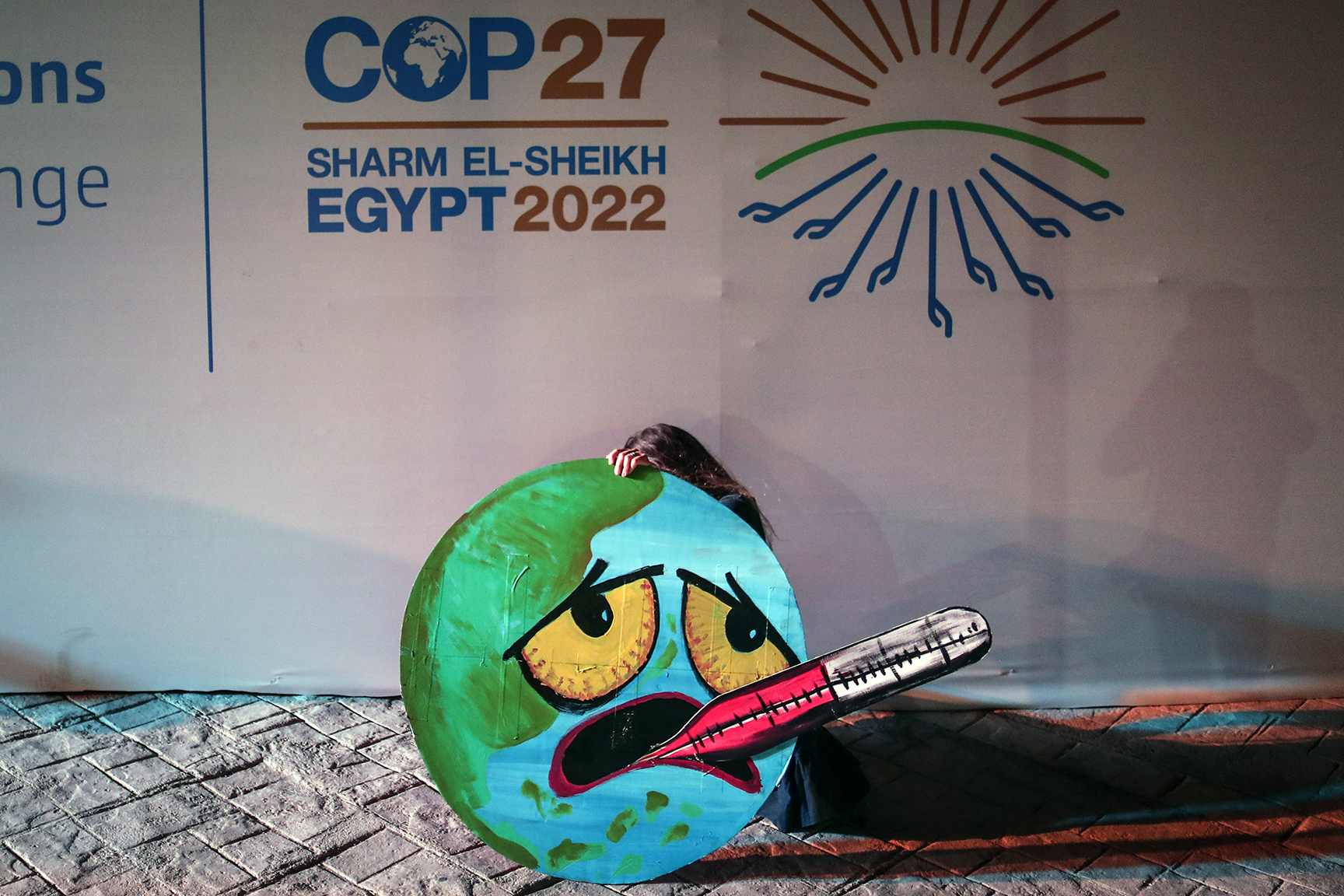
An activist at COP27 on 19 November 2022. (Photo: EPA-EFE / Sedat Suna)
The final deal reached on 20 November only “recognis[es] the fundamental priority of safeguarding food security and ending hunger, and the particular vulnerabilities of food production systems to the adverse impacts of climate change”.
Good news
There is tentative food-systems good news, though, in that more than 150 countries have signed a global pact to reduce their methane emissions, which is an increase of 50 countries in a year, since the US and the European Union launched the Global Methane Pledge at Glasgow’s COP26. (See a list of countries that have endorsed it here.) This is a major step in the direction of reforming food systems to improve planetary health, by potentially reducing meat consumption and food waste: Countries joining the Global Methane Pledge are signing up to each take voluntary actions to reduce their methane emissions by at least 30% from 2020 levels, by 2030. Experts say this could eliminate 0.2°C of global warming by 2050.
Cutting methane emissions by 30% this decade could eliminate 0.2°C of global warming by 2050 and is critical to meeting the no-more-than-1.5°C pledge made at COP26. The world’s top emitters of methane, China and India, have not yet signed the pledge, and neither have Russia or South Africa. DM/MC





















 Become an Insider
Become an Insider
Comments - Please login in order to comment.